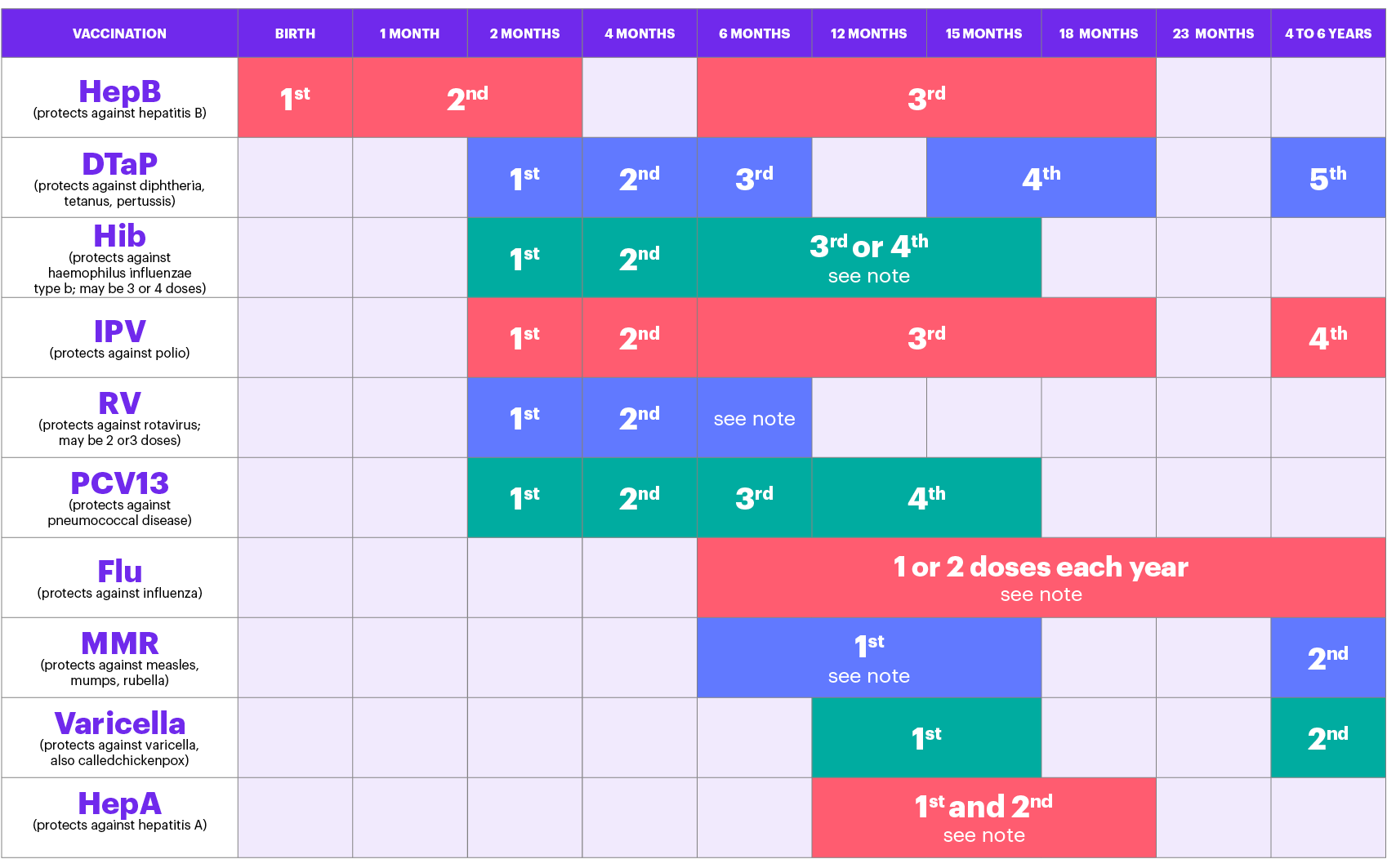
Vaccination Schedule for Babies: A Comprehensive Guide for Parents
Introduction
Vaccinations are a crucial part of protecting your baby’s health. They help prevent serious diseases that can cause lifelong complications or even death. The Centers for Disease Control and Prevention (CDC) recommends a specific vaccination schedule for babies to ensure they receive the necessary protection at the right time. This article provides a comprehensive guide to the vaccination schedule for babies, including the recommended vaccines, the timing of each dose, and potential side effects.
Recommended Vaccines
The CDC recommends the following vaccines for babies:
- Hepatitis B (HepB): Protects against hepatitis B virus, which can cause liver damage and liver cancer.
- Rotavirus (RV): Prevents rotavirus infection, which can cause severe diarrhea and dehydration.
- Diphtheria, Tetanus, and Pertussis (DTaP): Protects against diphtheria, tetanus, and whooping cough.
- Haemophilus influenzae type b (Hib): Prevents Hib infection, which can cause meningitis, pneumonia, and other serious illnesses.
- Pneumococcal conjugate (PCV13): Protects against pneumococcal disease, which can cause pneumonia, meningitis, and other infections.
- Inactivated poliovirus (IPV): Prevents polio, a paralytic disease.
- Measles, Mumps, Rubella (MMR): Protects against measles, mumps, and rubella, all of which can cause serious complications.
- Varicella (Var): Prevents chickenpox, a highly contagious disease that can cause serious complications.
Vaccination Schedule
The CDC recommends the following vaccination schedule for babies:
| Age | Vaccine |
|---|---|
| Birth | HepB |
| 2 months | DTaP, Hib, PCV13, IPV, RV |
| 4 months | DTaP, Hib, PCV13, IPV, RV |
| 6 months | DTaP, Hib, PCV13, IPV, RV, HepB |
| 12-15 months | MMR, Var |
| 15-18 months | DTaP, Hib, PCV13, IPV |
| 4-6 years | MMR, Var |
Additional Vaccines
In addition to the recommended vaccines, the CDC also recommends the following vaccines for babies in certain circumstances:
- Hepatitis A (HepA): Recommended for babies who live in areas with high rates of hepatitis A infection or who travel to such areas.
- Influenza (Flu): Recommended for babies 6 months and older during flu season.
- Meningococcal (MenB): Recommended for babies at high risk of meningococcal disease, such as those with certain medical conditions or who live in areas with outbreaks.
Timing of Doses
It is important to follow the recommended vaccination schedule as closely as possible. However, there may be some flexibility in the timing of doses. If your baby misses a dose, talk to your doctor about when to catch up.
Side Effects
Vaccines are generally safe and effective. However, some babies may experience mild side effects, such as:
- Fever
- Irritability
- Drowsiness
- Pain or redness at the injection site
These side effects usually go away within a few days. If your baby experiences any severe side effects, such as a high fever, seizures, or difficulty breathing, seek medical attention immediately.
Importance of Vaccination
Vaccinations are essential for protecting your baby’s health. They help prevent serious diseases that can cause lifelong complications or even death. By following the recommended vaccination schedule, you can give your baby the best possible chance of a healthy life.
Additional Tips
- Talk to your doctor about any concerns you have about vaccines.
- Keep a record of your baby’s vaccinations.
- If you have any questions about the vaccination schedule or side effects, contact your doctor or the CDC.
Conclusion
Vaccinations are a safe and effective way to protect your baby from serious diseases. By following the recommended vaccination schedule, you can give your baby the best possible chance of a healthy life. Remember to talk to your doctor about any concerns you have and to keep a record of your baby’s vaccinations.
